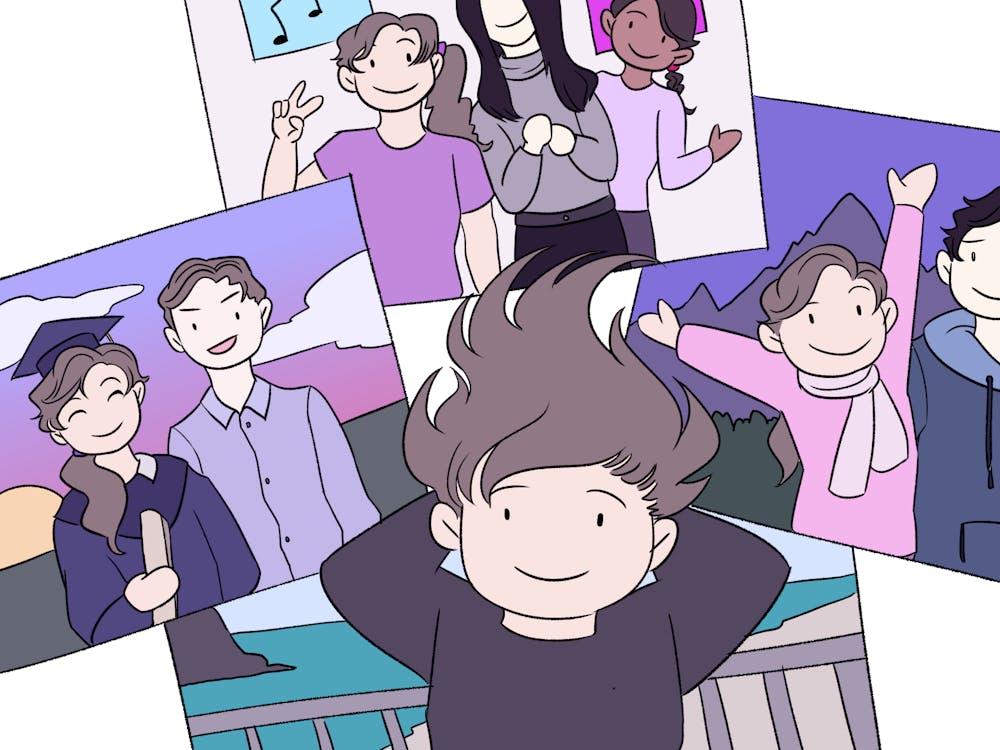At 6:27 a.m. on the morning of Nov. 6, my phone rang. I rolled over in my bed, flipped it over, slapped my face a few hearty times to ensure I was up and ready, and swiped at the green telephone icon demanding my attention. I recognized the ID: It was a friend of mine.
“Hello?” I said, trying to sound as awake as possible.
“Hey, I’m calling to tell you goodbye like I promised,” my friend responded with his slight Texas drawl. “I’m getting on Interstate 25 right now.”
I paused as I felt a twinge in my heart. “You’re... You’re coming back in December, right?”
“Of course I’ll be back. Corona, weather, and college administration permitting.”
The call lasted no more than two and a half minutes, and it was the product of a fragile situation that came crashing down on Sunday, Nov. 1.
While on my one-year leave of absence from Princeton, I decided to enroll at my local state junior college, Trinidad State, in Colorado. It’s a small college of no more than 450 students, nestled in the middle of nowhere in the rural southern part of the state. The school had laid out plans for its COVID-19 response, and the best part was that it included in-person instruction with masks and social distancing. It was a plan, but a feeble one that depended on many factors.
Those factors held fast until approximately the end of October. As a result of rising on-campus COVID-19 cases over Halloween weekend, the college chose to go online on Nov. 1. They had to shutter all plans for in-person instruction apart from the career and technical classes that are scheduled to resume in December, conditions permitting. This was a special consideration for the many nursing, cosmetology, and other trade students who need critical in-person work in order to complete their education.

Once again, I found myself in numb shock, saying rushed farewells to friends whom I had just started feeling truly attached to. Two of these friends left for home two days after the announcement, with three more joining them before the end of the week. They absconded to Kansas, Texas, Wisconsin, Montana, and many other faraway states. Campus emptied out, and my wardrobe changed back to more casual clothes as we transitioned to Zoom.
If anything, COVID-19 has certainly sharpened our senses to the old adage that life is fragile. This is now the second time in which an educational institution has slipped out from under me, sending colleagues and beloved friends fleeing to their corners of the earth and casting a veil of uncertainty over the immediate future.
It’s a difficult lesson that I feel many of us are yet to comprehend. I vividly recall watching in dismay last June as news covered people flocking back to bars and restaurants with no regard for distancing or safety measures. We had no appreciation for the privileges we had in a pre-pandemic life — I feel that has been why we are so eager to return to normalcy. Nobody took notice and “lived in the now” for the little things that made life flourish until COVID-19 snatched them away.
Two weeks prior, a small friend group of mine took advantage of the freshly fallen snow and subzero temperatures in order to go sledding in a park at night. With cowls over our faces to protect from illness and the caustic Colorado chill, we descended down the hill. Within minutes, a few of them took interest in a World War II-era cannon on display in the park, some climbing all over it. One scaled the front of the rig, straddled the barrel of the cannon, pointed forward valiantly, and bellowed into the cold, still night, “charge!”, eliciting laughs from all in attendance.

A few days later in that same week, Governor Jared Polis ’96 visited the Trinidad State Junior College campus in order to conduct a socially distanced and masked meet-and-greet with some members of the student government. The members were over the moon; it was an extraordinary opportunity that meant so much to so many. For some of them, it was their first time ever meeting a public official.
There were small moments, too. From singing my lungs out to a Surfaces song while kicking around a soccer ball with a friend to taking an animated church pastor for a drive around in my ’80s-era car so he could relive some childhood memories, there were these tiny, joyous little details in the overall portrait of my life this semester.
Mere days before the sudden halt to in-person classes, we were all on top of the world from various incidents, but blithely unaware of how special these moments actually are. COVID-19 came like a thief in the night, taking away all of our memories — unless we fight to take them in and fully welcome them as cherished pieces of life. We must put more value on things now, because we just may lose them again — without any prior notice — by acts of nature.
These situations brought forth by COVID-19 recall one of my favorite quotes by Oscar Wilde: “Ordinary riches can be stolen; real riches cannot. In your soul are infinitely precious things that cannot be taken from you.”
Thus, kiss your loved ones, tell that person how you feel, give a warm embrace to the little ones that follow you everywhere. Whether you are watching TV, reconnecting with friends, cooking a special meal with someone, or coming across an old acquaintance in a chance run-in, you must savor it. Take time to heal, take time to build, take time to inspire, and keep these occasions with highest regard in your memory. The 2020 pandemic just might alter what you do, who you love, and how you live life, but it is incapable of ransacking our memories made — as long as we do not permit it to do so. No matter how large or small, these things are fleeting — hold on while you can.








